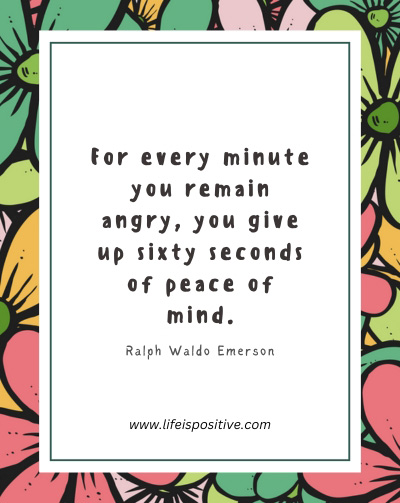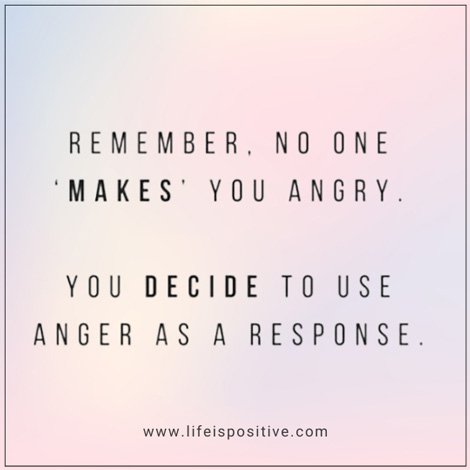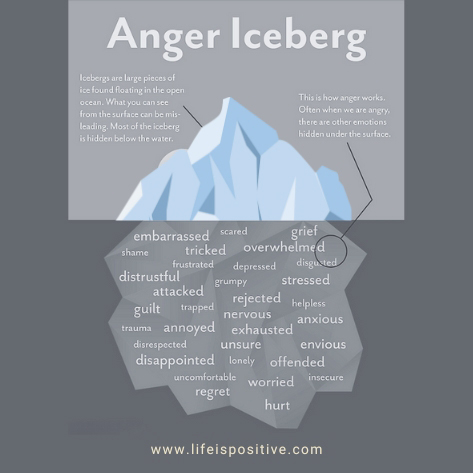|
Getting your Trinity Audio player ready...
|
We all lose our cool now and then—missed calls, spilled coffee, rush hour traffic… it happens. But when anger becomes a regular guest in your relationship—loud, intense, and leaving emotional messes behind—it’s more than just a bad mood. It’s a red flag with flashing lights.
If your partner has anger issues, first, take a breath. You’re not alone in this, and no, you’re not overreacting. It’s easy to feel like you’re walking on emotional eggshells, constantly trying to keep the peace. But love shouldn’t feel like a battlefield, and managing someone else’s temper shouldn’t be your full-time job.
The good news? You’re not powerless. The moment you start tuning into your own needs—your peace, your boundaries, your truth—is the moment things can start to shift. Let’s dive into what it really means when your partner has anger issues, and more importantly, what you can actually do about it.
1. Acknowledge That It’s a Real Problem
Let’s get real—“That’s just how they are” isn’t a personality trait, it’s a warning sign dressed up in denial. If your partner has anger issues, it’s not romantic, passionate, or edgy. It’s exhausting. And excusing it, blaming yourself, or trying to shrink to fit their moods? That’s not love—that’s survival mode.
Anger, in itself, isn’t the villain here. It’s human. It bubbles up when boundaries are crossed, when emotions overwhelm, or when unhealed wounds get poked.
But when your partner has anger issues that lead to yelling, guilt trips, threats, emotional shutdowns, or intimidation? That’s no longer just “a moment”—it’s a pattern. And patterns shape the emotional climate of your entire relationship.
If you constantly feel like you’re bracing for the next explosion or freezing in the silence that follows, it’s time to stop walking on eggshells and start calling it what it is.
Recognizing the cycle is the first step toward reclaiming your emotional safety—and that’s where real healing begins.
2. Protect Your Energy and Set Boundaries
When your partner has anger issues, guarding your peace isn’t optional—it’s self-defense. Anger spreads fast, and if you’re not mindful, you’ll start matching their fire or dimming your light just to avoid conflict.
That’s not harmony; that’s survival. Your calm is sacred, your voice matters, and your well-being isn’t up for negotiation. Protect your space like your soul depends on it—because honestly, it kind of does.
Set clear emotional boundaries. That could look like:
• “I won’t continue this conversation if yelling starts.”
• “I need space when things get heated.”
• “It’s not okay to call me names, even when you’re upset.”
Setting boundaries isn’t punishment—it’s protection. And it’s the foundation of a healthy dynamic.
Read: How to Release Anger: 3 Healthy Ways
3. Don’t Make Yourself the Fixer
When your partner has anger issues, it’s tempting to play peacekeeper, therapist, or emotional firefighter. You might find yourself trying to soothe them, take the blame, or avoid triggers at all costs just to keep things calm.
Newsflash: you’re not their therapist, their punching bag, or their personal anger management plan.
Love doesn’t mean absorbing someone else’s unprocessed emotions. You can offer support, yes—but saving someone from their own unhealed anger isn’t love, it’s emotional burnout. And it’s not your job to sacrifice your emotional well-being in hopes that they’ll finally change.
4. Encourage Help, Not Shame
Let’s be real—bringing up therapy when your partner has anger issues can feel like poking a bear. But if they truly care about you (and the future of your relationship), growth won’t scare them—it’ll motivate them.
Change starts with accountability, not defensiveness. And suggesting help isn’t an attack; it’s an invitation to heal, together. A partner willing to grow is a partner worth growing with. The rest? Red flag territory.
Approach the topic with compassion, not accusation. Try:
• “I’ve noticed your anger is really affecting us. Would you consider talking to someone?”
• “I care about you and want us to be stronger. Getting help could really support that.”
Remember: Seeking help doesn’t mean they’re broken—it means they’re human and willing to grow.
5. Don’t Ignore the Impact on You
When your partner has anger issues, it doesn’t just affect them—it spills into your emotional world, too. The mood swings, the tension, the walking-on-eggshells routine? It can leave you anxious, drained, and questioning your worth. But here’s the thing: you matter.
Your peace, joy, and sanity are non-negotiable. Don’t ignore the signals. You deserve a love that feels safe, not suffocating. Keep checking in with yourself:
• Are you feeling safe in this relationship?
• Are you making excuses for behavior that wouldn’t fly with someone else?
• Are you losing touch with who you are?
If your partner has anger issues, you can’t afford to ignore the toll it’s taking on your spirit. Prioritize your mental and emotional health.
6. Watch for Red Flags
Let’s get real. There’s a difference between someone with occasional temper flare-ups and someone who uses anger as a weapon. If your partner’s behavior turns controlling, verbally abusive, or physically threatening, that’s not just an issue—it’s danger.
Red flags to never ignore:
• Intimidation (yelling, slamming things, breaking items)
• Name-calling or emotional shaming
• Physical aggression, no matter how “minor”
• Gaslighting or blame-shifting
If you’re seeing these signs that cross into abuse, please reach out to a professional or support network. Your safety comes first—always.
Read: How to Handle When Your Anger Is Out of Control
7. Communicate—Calmly, But Clearly
When the dust settles, and you’re not in the middle of a storm, have honest conversations. You’ll need to express how their behavior affects you—without blame, but with firm clarity.
Use “I feel” statements. For example:
• “I feel anxious when you raise your voice during arguments.”
• “I feel like I’m shutting down emotionally when anger takes over.”
The goal isn’t to “win” the conversation—it’s to build awareness and shift the dynamic. Communication has to become a tool for connection, not confrontation.
8. Make a Plan—With or Without Them
Let’s be honest: love alone can’t fix everything. If your partner has anger issues and they refuse to change, seek help, or respect your boundaries, you have a right to make a plan for yourself.
That plan might include:
• Couples counseling
• Personal therapy
• Time apart
• Or, if necessary, ending the relationship
It’s hard to think about walking away from someone you care about—but if your partner continues to hurt you emotionally, it’s okay to prioritize your peace over staying in pain. You’re not giving up. You’re growing up.
Read: Best Way to Release Anger
9. Reclaim Your Power
Here’s the empowering truth: you don’t have to lose yourself trying to love them through it. Reclaiming your power means returning to your roots—your joy, your voice, your sacred sense of self.
Reconnect with what lights you up. Surround yourself with people who lift you. The right partner won’t dim your light or shrink your soul—they’ll cheer you on while you shine even brighter.
Final Thoughts: Partner Has Anger Issues
If your partner has anger issues, it doesn’t automatically mean the relationship is doomed—but it does signal that change is necessary. That change isn’t just for their benefit—it’s for your well-being and the future of your connection.
A loving relationship can’t thrive in an environment of fear, emotional tension, or constant conflict. It needs safety, trust, and mutual respect to grow.
Real love is not about control, walking on eggshells, or guessing what mood you’ll wake up to. It’s not about sacrificing your peace to avoid triggering someone else’s outburst.
Love is meant to feel safe, steady, and emotionally supportive. You deserve that kind of love—one that honors your voice and your value.
So if your partner has anger issues, shift the focus from managing their reactions to honoring your truth. Set boundaries. Ask for help. Say what needs to be said. And know that protecting your peace isn’t selfish—it’s sacred. Healing starts when you choose you.
For more empowering content, connect with our vibrant community here ➡️ Social Media.



